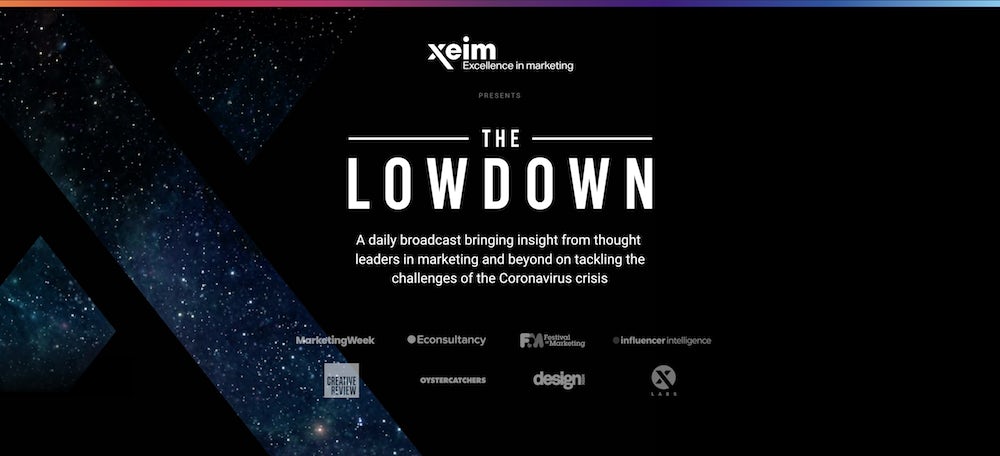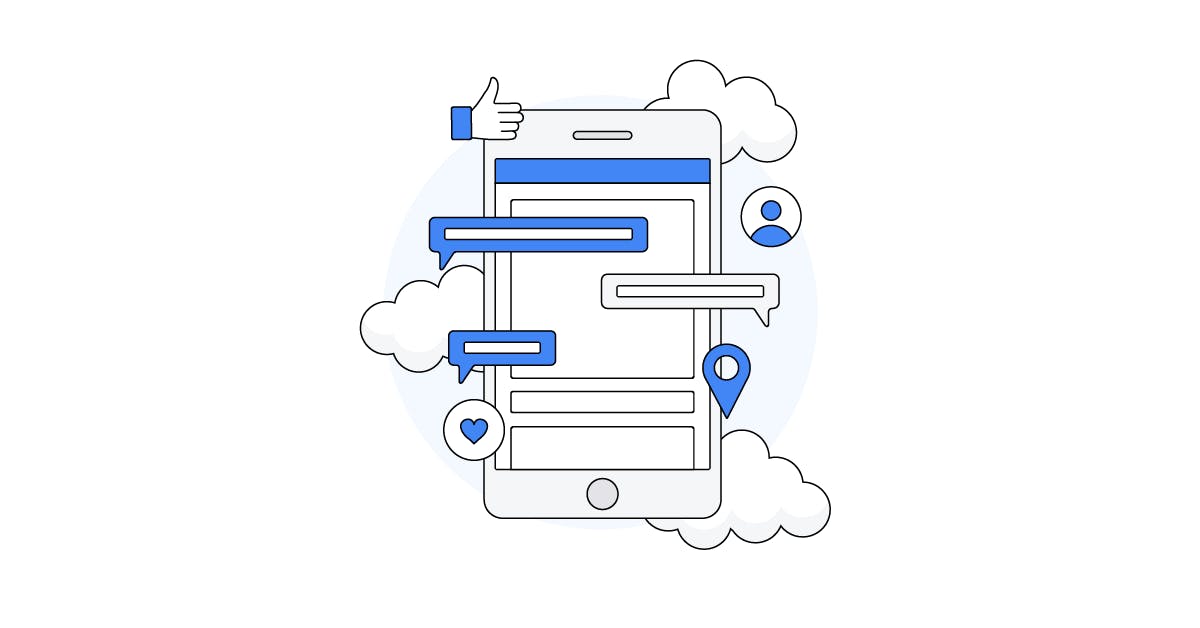With companies of all sizes under threat due to the impact of coronavirus, social platforms are introducing new features specifically to help small businesses survive through the pandemic.
Here’s more on what platforms are doing, and how the new features work.
Facebook launches Shops
Facebook has announced the launch of Shops, a new feature that will enable businesses to display and sell their products on the platform. The move comes as many retailers have been forced to shut down bricks-and-mortar stores due to the coronavirus pandemic, with many now looking to sell online.
Shops allows businesses to create digital storefronts for free, so that customers can buy products directly from Facebook or a retailer’s website. The feature will also appear on Instagram, allowing users to discover Shops via Stories or ads.
Facebook already allows sales through Marketplace, however, the platform is centred around selling personal belongings (similar to Craigslist or eBay). By contrast, Shops is aimed at businesses, enabling them to compete with established retail stores on the likes of Amazon and Etsy.
With the launch of Shops, Facebook has partnered with eight third-party shopping platforms. One of these is Shopify, which has also announced the launch of a new unified Facebook channel. This means that merchants can connect their Shopify business to Facebook, while still making their customers’ shopping experience feel native to each individual app.
YouTube’s video ad tool
Creating quality video content is not always easy, particularly for small businesses who might lack the skills or budget to do so. On top of this, of course, businesses are now unable to hold in-person video shoots. Consequently, YouTube has launched its ‘Video Builder Tool’, which allows small businesses to create video content for free. The tool had been in development for months, however, its release was accelerated in order to help businesses with their communication and content strategies in light of coronavirus.
Ali Miller, director of Product Management at YouTube Ads, explained in a blog post: “It’s a free beta tool that animates static assets – images, text and logos – with music from our library.”
Essentially, users are able to create and customise short videos (of six or 15 seconds in length), which they can then share via YouTube or use in a YouTube ad campaign. One of the tool’s main benefits – particularly in comparison to other free editing tools – is that videos are integrated with the Google Ads program, meaning that the videos will be served to relevant viewers on YouTube.
Pinterest Shop to highlight small and sustainable brands
According to Pinterest, searches for ‘support small business’ have increased by 351% on the platform as users increasingly look to buy and support small and independent companies. At the same time, Pinterest has noted an increase in searches for ‘eco-friendly living’ and ‘zero waste products’, which have risen 93% and 108% respectively.
As a result of this, and to coincide with Earth Day on April 22nd, Pinterest has added a number of new products from sustainable brands onto the Pinterest Shop, which also happen to come from from 21 small and medium-sized businesses in the US. The idea is to bring increased visibility and exposure to these businesses at what is an undoubtedly crucial time, and to capitalise on the growing interest in shopping on the platform.
Hey everyone, Cayley and Andy here, the co-owners of Made Trade. Today @pinterest is launching their new editorial shop curated for Earth Day, and it features Made Trade!
See hundreds of shoppable pins from sustainable and ethical small businesses. https://t.co/KpQRoMMVvW pic.twitter.com/V3lnNoF80T— Made Trade (@madetrade) April 14, 2020
In order to heighten awareness of the initiative, Pinterest has also partnered with influencer and designer Lauren Conrad, who has created a board of eco-friendly products from her fair trade ecommerce marketplace, The Little Market.
Another new feature from Pinterest is the ‘Verified Merchant Program’, released in March, which enables vetted retailers to display a blue checkmark on their profile if they meet certain criteria. According to Pinterest, verified merchants will also “become eligible for increased distribution within high-intent shopping experiences and metrics like conversion reporting.” This means that retailers will receive a number of special perks, such as their products showing up in within dedicated pages like ‘related products’, and access to data insights and metrics such as customers’ average order value.
Facebook’s business resource hub
There are over 90 million small businesses on Facebook, most of which generate crucial advertising revenue for the platform. Naturally, Facebook has always aimed to support small businesses; ‘Automated Ads’ and ‘Appointment’ are just two tools it has previously created to help small brands succeed on the platform.
Now in light of Covid-19, Facebook has launched the ‘Business Resource Hub’ to support those being affected by the pandemic. The free-to-access hub includes a ‘resilience toolkit’, which has information about preventing business disruptions, and a ‘quick action guide’ to help coordinate response activities.
Facebook has also provided businesses with a number of free templates to help them communicate key messages related to Covid-19 responses, as well as simple messages of gratitude. Examples of templates include ‘yes, we’re still taking orders’ and ‘we wouldn’t be here without you’.
We shared an update on our efforts to help small businesses get through this challenging time including: updates on our small business grants program in the US, new digital gift cards for local businesses on Facebook and more. https://t.co/jpQj33VnkI
— Facebook Newsroom (@fbnewsroom) April 3, 2020
Instagram’s stickers for small businesses
Facebook-owned Instagram has also released a new feature to help small businesses make sales, which this time comes in the form of gift card, food order, and fundraiser stickers which they can share on their profile or in Stories.
This means that, while consumers might not be able to visit businesses in person or access immediate services, they can still support their local or favourite businesses either by ordering take-out, making purchases that can be redeemed at a later date, or by making direct donations.
Today we’re launching a way for you to support small businesses through gift cards and takeout or delivery orders ????
For more info ???? https://t.co/D3W1ze5sRQ pic.twitter.com/Xr88jyPSze
— Instagram (@instagram) April 15, 2020
By tapping on stickers, customers are taken to a website where they can complete their order, or onto a dedicated fundraising page on Facebook. Customers can also share the stickers in their own Stories if they want to show support to certain businesses in their area. According to Instagram, the feature will be available in the US and Canada, before being rolled out internationally after that.
The main benefit of the feature is to maintain awareness for small businesses as well as amplify new opportunities to earn through the pandemic. Even if customers know that a business has an Instagram presence, they might not be aware of the different ways they can support them online or via the platform during this time.
For more social media resources, visit our hub page.









